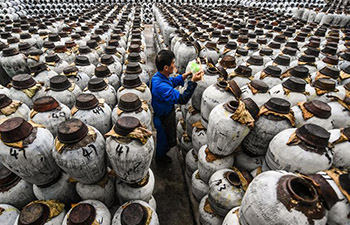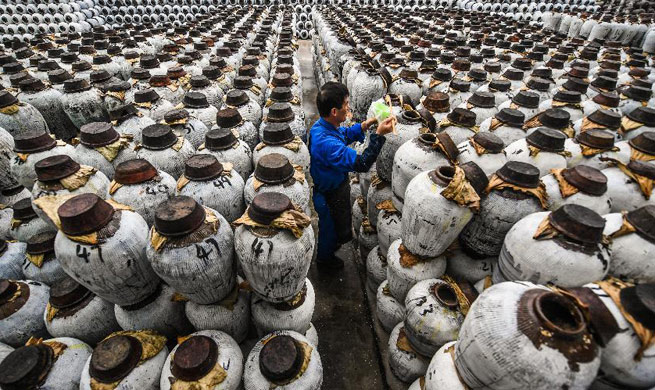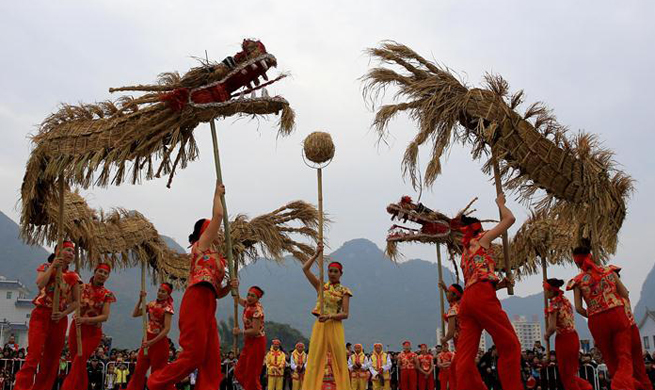by Xinhua writers Liu Chen, Hu Yousong
WASHINGTON, Nov. 7 (Xinhua) -- U.S. President Donald Trump's upcoming visit to China, a chance of further top-level communication, will benefit future bilateral ties, said a leading U.S. expert on China-U.S. relations.
Trump launched his first Asia tour on Friday, during which he will pay a three-day state visit to China, the first of its kind since he assumed presidency.
The meeting will provide an opportunity for top leaders of the two countries, who have already established warm personal relationship in their Mar-a-Lago meeting, to exchange ideas, said Cheng Li, director of the John L. Thornton China Center at the Brookings Institution, in a recent interview with Xinhua.
Trump welcomed his Chinese counterpart Xi Jinping at his resort in the U.S. state of Florida in April, where the two agreed to advance bilateral economic cooperation and establish four high-level dialogue mechanisms.
Though advocating "America First" after taking office, Trump has recognized that the United States needs cooperation with other countries in international affairs, "especially with China," said Li.
In fact, a China visit in the first year of Trump's presidency has already revealed the importance the Trump administration has attached to the China-U.S. ties, the senior fellow at the U.S. think tank added.
During Trump's stay, which is slated for Nov. 8-10, bilateral trade, an area with growing dispute between the two sides, has been widely perceived a major issue on the agenda.
Acknowledging that economic friction is quite "natural" among big powers, Li said the cooperation and win-win spirit remained the mainstream in China-U.S. ties.
China and the United States, as the two largest economies as well as the biggest markets in the world, could find a way to complement each other, Li said.
"China's service sector development, domestic markets, and its emphasis on public health and green development are very much in line with the interest of the U.S. companies, which have the strength in these areas," Li said.
Meanwhile, Trump's big plan for infrastructure development should also give opportunities for Chinese investors considering China's success in this area in the past three years, the scholar on foreign policy said.
Li also mentioned China's initiative on the construction of the Silk Road Economic Belt and the 21st Century Maritime Silk Road (Belt and Road Initiative), under which he believes China and the United States have tremendous room for cooperation.
Launched in 2013, the initiative is a program to bring together countries in Asia, Europe and Africa via overland and maritime networks.
Referring to the escalating tensions on the Korean Peninsula, another topic of mutual concern for the top Chinese and U.S. leaders, Li said that it is "a very serious challenge" for the region and the world at large.
"All the parties involved should take this issue seriously through dialogue and communication," Li added.
Strengthening people-to-people communication is also vital to boost bilateral ties, said the scholar, who believes that misunderstanding is still common between the two peoples.
Only by more communication can we avoid "oversimplify" the image of each other, Li said.
Li also praised the first round of China-U.S. Social and People-to-People Dialogue held in Washington in September, which has further boosted bilateral exchanges, especially among the youth in the two countries.
"China-U.S. relations are so important that we cannot miss any chance (of communication)," Li said.

















